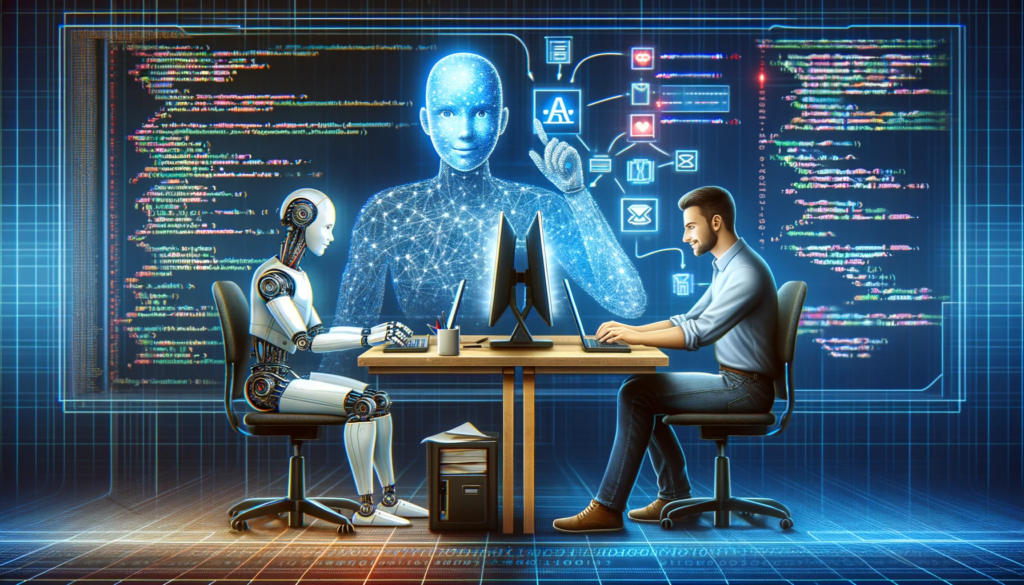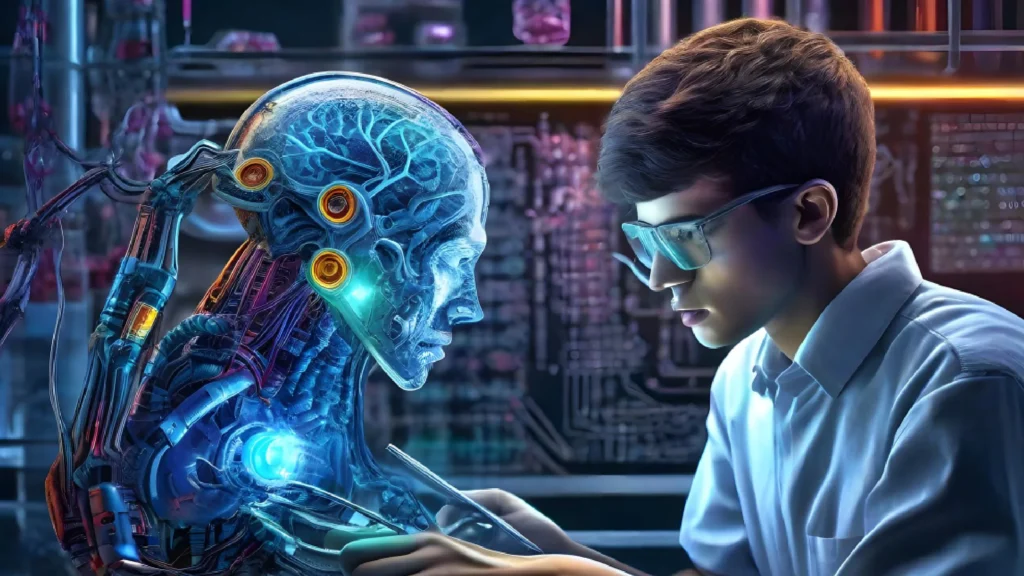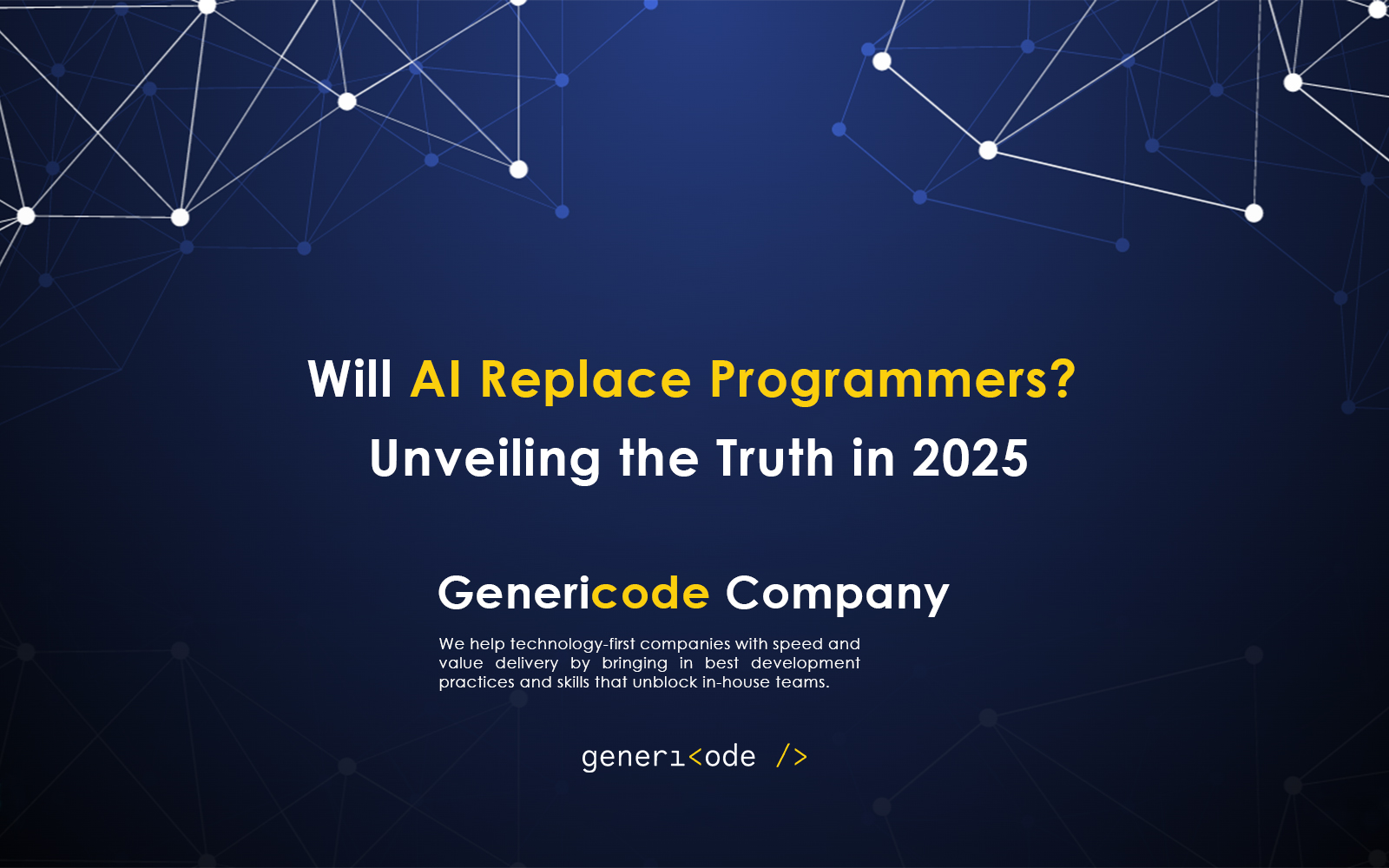The question “Will AI replace programmers?” has become one of the most debated topics in the tech industry. As we advance through 2025, artificial intelligence is becoming increasingly capable of writing code, debugging software, and even designing applications. But does this mean that human developers will soon be obsolete? Or is AI simply a tool to boost productivity and creativity? Let’s explore the reality behind this rapidly evolving trend.

How AI Is Changing the Development Landscape
AI-powered tools like GitHub Copilot, Tabnine, and Amazon CodeWhisperer are transforming the way developers work. These tools use machine learning models trained on massive codebases to assist in writing and completing code snippets in real-time. This not only saves time but also reduces common coding errors.
In 2025, these tools have become smarter, more intuitive, and capable of understanding complex programming logic. However, they still rely heavily on human input and supervision to deliver accurate results.
Tasks AI Can Handle Efficiently
AI has proven especially effective in handling repetitive and rule-based programming tasks, such as:
- Auto-completing code lines
- Detecting bugs and suggesting fixes
- Writing boilerplate code
- Conducting code reviews
- Recommending best practices
While these are significant advantages, they mainly enhance rather than replace the developer’s role.
Also read: From Prototype to Product: Agile Development Trends in 2025
The Human Factor in Software Development

Software development is not just about writing code; it’s about problem-solving, architecture design, system integration, and understanding user needs. Human developers bring creativity, critical thinking, empathy, and business understanding to the table – areas where AI still falls short.
Moreover, building robust applications requires collaboration, communication, and adaptability, which are uniquely human traits. AI can support these tasks, but it cannot fully replicate them.
The Rise of No-Code and Low-Code Platforms
No-code and low-code development platforms like Webflow, Bubble, and OutSystems are also contributing to the discussion. These tools allow non-developers to create functional applications without writing traditional code. However, they too have limitations in flexibility, customization, and scalability.
Professional developers are still needed to build complex solutions, integrate APIs, and ensure the security and performance of applications.
What Programmers Should Focus On in 2025
Instead of fearing AI, developers should embrace it as a powerful assistant. Here are key areas to focus on:
- AI literacy: Understanding how AI tools work
- Soft skills: Communication, teamwork, and project management
- Advanced problem-solving: Tackling complex algorithms and systems
- Security: Designing secure and privacy-first applications
Developers who upskill in these areas will not only remain relevant but also lead innovation in their fields.
Also read: Digital Privacy in the Age of AI: What You Must Know for 2025
Expert Opinions and Industry Insights
According to a recent Forbes Technology Council article, AI will not eliminate the need for developers but will shift the nature of their work. Human oversight, ethical judgment, and creativity will always be essential in software development.
Likewise, MIT Technology Review emphasizes that AI will become a co-pilot, not a replacement, for coders.
Conclusion: Will AI Replace Programmers?

The short answer is: no, not entirely. AI is transforming programming, making it faster and more efficient, but it cannot replace the human insight, context-awareness, and innovation required to build truly impactful software.
For programmers in 2025, the key is to adapt, learn, and collaborate with AI tools. Rather than fearing replacement, embrace the evolution and become the kind of developer that the future needs.
Our Social Media platforms
Facebook – Instagram – LinkedIn
WhatsApp : +43 678 9070319447

